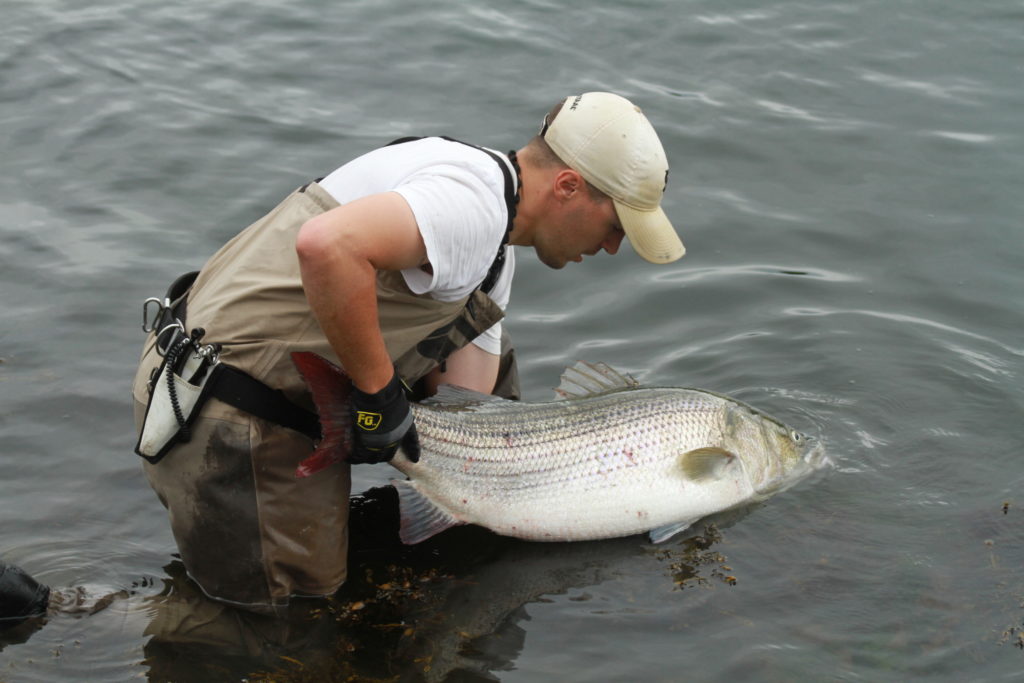 Several weeks ago we first passed along word of the impending public hearings on striped bass management.
Several weeks ago we first passed along word of the impending public hearings on striped bass management.
Well, the time is upon us here in New England to attend said hearings with Rhode Island and Massachusetts’s meetings this week, and Connecticut to follow next week. There are additional meetings scheduled, so be sure to refer back to the original post for details on other states.
| Date | State/Agency Jurisdiction | Contact |
| Wednesday, March 17 6:00 – 8:00 p.m. | Rhode Island Dept. of Environmental Management | Nicole Lengyel Costa, 401.423.1940 |
| Thursday, March 18 6:00 – 8:00 p.m. | Massachusetts Division of Marine Fisheries | Michael Armstrong, 978.282.0308 x109 |
| Wednesday, March 24 6:00 – 8:00 p.m. | Connecticut Dept. of Energy & Environmental Protection | Justin Davis, 860.447.4322 |
In order to attend these virtual meetings you will need to pre-register for the chosen webinar (you can sign up for all or any of them.)
As the first step in the amendment process, the PID seeks input from those interested in striped bass about changes observed in the fishery/resource and potential management measures. It has been 18 years since the last plan amendment to the Atlantic Striped Bass FMP was adopted (Amendment 6). Since then, the status and understanding of the striped bass stock and fishery has changed considerably which raises concern that the management program no longer reflects current fishery needs and priorities. The results of the 2018 Benchmark Stock Assessment in particular led the Board to discuss a number of prominent issues facing striped bass management. Consequently, the Board initiated the development of Amendment 7 in August 2020.
The purpose of the PID is to solicit stakeholder input on prioritizing the importance of each topic for continued development and potential inclusion in the Draft Amendment. The PID considers the following management topics:
- fishery goals and objectives;
- biological reference points;
- management triggers:
- stock rebuilding targets and schedule;
- regional management;
- management program equivalency (conservation equivalency);
- recreational release mortality;
- recreational accountability;
- coastal commercial quota allocation; and
- other issues raised in public comments.
So how do these 10 points break out? And what would changes to striped bass management contained in adjustments to any of these 10 management topics mean for recreational fishermen in the coming years and their ability to target the species of which they love? Hopefully, these points will be addressed in the upcoming virtual hearings presented by the ASMFC related to the ongoing and future management of Atlantic striped bass.
